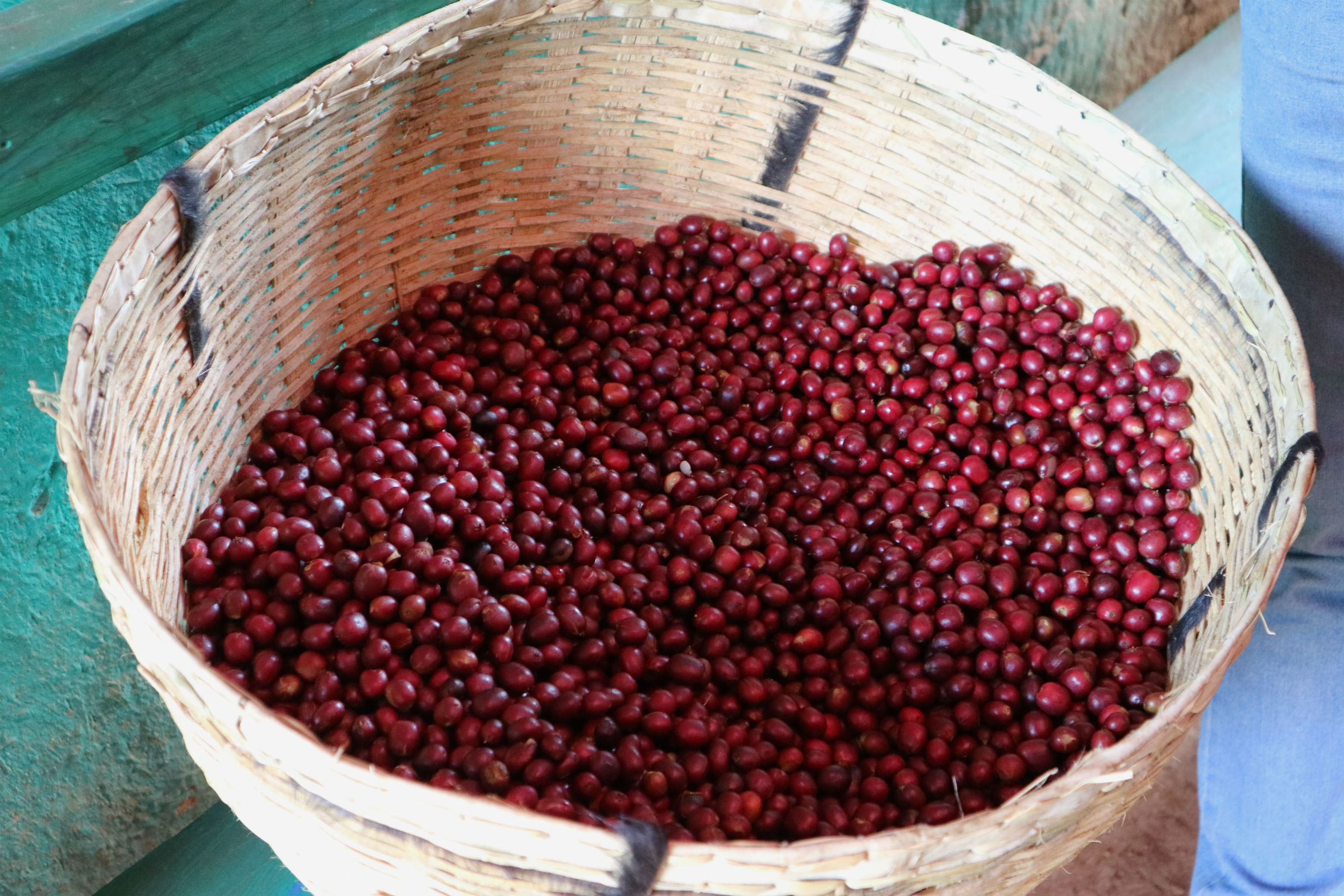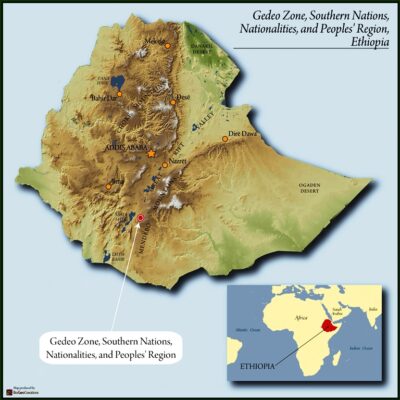- You cannot add "COLOMBIA FT-FLO/USA ORGANIC TOLIMA - 29571 - 69.8 kg GrainPro Bags - SPOT CCARGO" to the cart because the product is out of stock.
ETHIOPIA GUJI 3 NATURAL FTO LAYO TERAGA GRAINPRO
Bags 0
Warehouses Oakland
Out of stock
About this coffee
Grower
Layo Teraga Cooperative | 325 members
Altitude
2100 masl
Variety
Indigenous heirloom cultivars
Soil
Vertisol
Region
Uraga, Layo Teraga, Guji Zone, Oromia Region, Ethiopia
Process
Full natural and dried on raised beds
Harvest
October – January
Certification
Organic
Coffee Background
The majority of the Guji Zone, part of the greater Oromia Region, can be a full day’s drive (or many days’ walk) from the nearest trading centers of Gedeb or Dilla to the west. For many parts of Guji, therefore, small farmers are debilitated by lack of access to market, and cherry prices often less than half of neighboring Gedeo or Sidama zones. The gorgeous arabica genetics of this area, blessed by some of the country’s healthiest biodiversity, are often ruined in transit, or commodified and blended into lower grades as a result of the difficult geography, and one way or another rarely gets a fair showing in the market. Famers have historically survived the access disadvantages by having larger, more diversified parcels, sometimes 20 acres or more, with equal emphasis on livestock or other crops for local markets as on coffee. But the vast majority have always been small—2-4 acres only. Were it not for cooperatives like Layo Teraga, who have been investing in the area for over 40 years, growers in this part of Guji would have as their only option the sporadic, rogue coffee collector from Gedeo or farther, bringing rock bottom prices and a take-it-or-leave-it attitude.
The Layo Teraga Cooperative was founded in 1976 and its membership comes from throughout the Uraga woreda (county), in the north of the zone. Within Uraga, cooperative membership ranges between the Layo Teraga, Gajaba, and Siko kabeles (districts). Elevations here are staggeringly high for coffee--most of the member farms are situated at 2000 meters or higher—and naturals tend to be very dense and layered. All cherry delivered to the cooperative for natural processing is hand-sorted and then carefully and continuously turned on raised beds in full sun over a period of weeks before reaching the necessary 11% moisture.
The cooperative has a current membership of 1,821 farmers, with a total of 1,124 hectares of farmland between them. Family farms in this area, small as they are, require 5-10 people each to complete a harvest. The cooperative has two processing sites and one dry mill, both of which they plan to expand in coming years.





